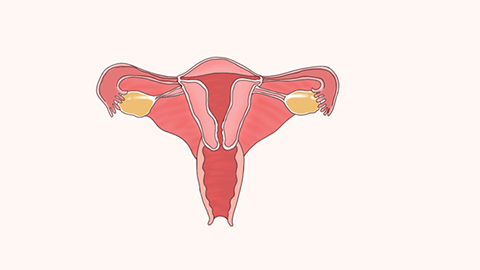What causes an enlarged uterus?
Generally, an enlarged uterus may be caused by pregnancy, individual developmental differences, adenomyosis, uterine fibroids, or uterine hypertrophy. It is recommended to seek timely medical consultation to determine the exact cause and receive appropriate treatment under a doctor's guidance. Detailed analysis is as follows:

1. Pregnancy: After conception, the uterus gradually enlarges to accommodate fetal growth, which is a normal physiological change. This condition is often accompanied by symptoms such as missed periods and morning sickness. No special treatment is required, but regular prenatal checkups are necessary to monitor fetal development and uterine changes. Maintaining a balanced diet, avoiding strenuous activities, and ensuring a safe pregnancy are also important.
2. Individual developmental differences: Some women may have a slightly larger-than-normal uterus due to congenital developmental factors. This typically does not cause noticeable discomfort, and menstrual cycles and flow remain normal. No treatment is needed; however, maintaining regular作息, good hygiene practices, and undergoing routine gynecological examinations to monitor uterine status are recommended.
3. Adenomyosis: The invasion of endometrial tissue into the uterine muscle layer causes thickening of the myometrium and uniform enlargement of the uterus. This condition is often accompanied by progressive dysmenorrhea (painful menstruation) and heavy menstrual bleeding. Patients may follow medical advice to use medications such as norethisterone enanthate capsules, danazol capsules, or levonorgestrel-releasing intrauterine systems to inhibit endometrial proliferation and alleviate symptoms.
4. Uterine fibroids: Benign tumors formed by the proliferation of uterine smooth muscle tissue can cause the uterus to enlarge as the tumor grows. This may be accompanied by abdominal pain and menstrual irregularities. Smaller fibroids can be managed with medications such as mifepristone tablets, Guizhi Fuling capsules, or Gongliu Xiao capsules, as directed by a physician, to control fibroid growth. When fibroids are large or symptoms are significant, hysteroscopic myomectomy may be required to remove the fibroid tissue and restore the uterus to its normal size.
5. Uterine hypertrophy: Proliferation of smooth muscle cells in the myometrium leads to uniform enlargement of the uterus. This condition is often caused by long-term stimulation from chronic inflammation and may be accompanied by increased vaginal discharge and lower back pain. Uterine artery embolization is commonly performed to block blood flow in the uterine arteries, inhibit myometrial proliferation, and reduce the size of the uterus.
In daily life, maintaining external genital hygiene is important. Wash the vulva daily with warm water, change cotton underwear regularly, avoid unclean sexual practices, and reduce the risk of intrauterine infection. In terms of diet, limit consumption of spicy and irritating foods, eat more fresh fruits and vegetables, maintain regular作息, and promote uterine health through healthy lifestyle habits.





